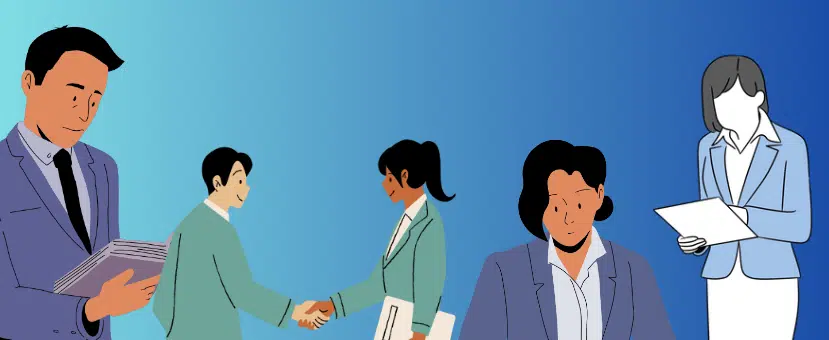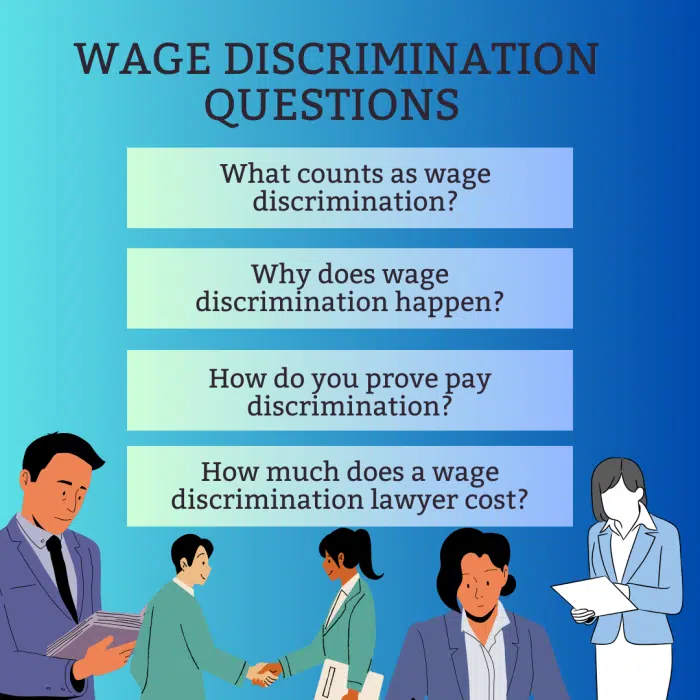
Wage Discrimination Q&A with Employment Attorney Charles Joseph
May 13, 2024
Are you earning less than your coworkers with similar experience and responsibilities? That’s a red flag for wage discrimination.
New York employment attorney Charles Joseph brings decades of experience winning discrimination lawsuits. In this Q&A, Charles answers common questions about wage discrimination.
Want to know more about how to deal with unfair pay at work? Check out our wage discrimination resources.
What counts as wage discrimination?
Legally, wage discrimination means paying someone less because of their sex, race, disability status, or any other protected characteristic. For example, companies can’t pay women less than men for the same work.
You’ve probably heard the phrase “equal pay for equal work.” That’s at the basis of wage discrimination protections.
Employers can’t pay people with disabilities, immigrants, or people of color less than other employees. They also can’t discriminate with compensation or benefits against employees because of their sexual orientation, pregnancy status, or age.
Check out our equal pay and wage discrimination resources for more wage discrimination examples.
Is it legal to pay different wages for the same job?
It’s not automatically illegal to pay two people different salaries for the same job. But it is illegal if you’re paying someone less because they’re in a protected class.
What does that mean in practice? A company can’t pay project managers with the same job descriptions and experience different wages because one is a woman.
In New York, the law states that you must receive equal pay for equal work or “substantially similar work.” If you can prove that you were paid less than coworkers who do the same job, you may have a wage discrimination case.
What are signs of wage discrimination?
It can be hard to know if you’re experiencing unfair or illegal pay at work. Some common signs of wage discrimination include missing out on raises or bonuses that other coworkers receive, getting fewer benefits, or getting passed over for a promotion.
You can always ask a coworker about their pay. The National Labor Relations Act protects your right to discuss compensation with coworkers. While some employers try to discourage you from openly discussing your salary, you have legal protections.
Why is equal pay important?
Equal pay for equal work is fair. And wage discrimination means that protected groups don’t receive the wages they should be earning.
Here’s how I explain how wage discrimination results in unequal pay: say a company hires two workers at the same time. Both have a college degree and around five years of work experience. They’re hired with the same title and job duties. But the woman receives $10,000 less than the man.
That lower starting salary can lead to years of unequal pay––and depending on the facts of the case, it could count as wage discrimination.
In what states is it illegal to ask for salary history?
Asking for salary history can perpetuate wage discrimination. Consider a woman who was underpaid at her last job. If her next job uses her prior salary to decide how much to pay her, that can result in unequal pay for equal work.
As a result, several states now ban salary history questions during the hiring process. Under many of these laws, employers cannot ask you about your pay history or use it to determine your compensation.As of May 2024, 22 states and 23 localities have active salary history bans, including California, Connecticut, Illinois, New Jersey, New York, and Virginia.
How do you prove pay discrimination?
Proving pay discrimination starts with collecting evidence. It’s helpful if you have salary information for coworkers, but it’s not necessary. If you have reason to believe you were underpaid and file suit, your employer is obligated to turn over the information. If that data shows that women, people of color, or members of other protected classes receive lower salaries, you likely have a case.
You can also file a complaint with the EEOC or reach out to an employment lawyer to see if you have a case.
Why does wage discrimination happen?
Wage discrimination laws are clear. So why do employers violate the statute? When I litigate these cases, it’s sometimes simply that the right hand (say HR) does not know what the left hand (the people that set your salary) is doing. More commonly, employers, seeking to pay as little as possible, take advantage of women and minorities believing that they will work for less money.
Finally, I have encountered white or male managers who are biased and believe that women and minorities deserve less, which is blatant and illegal prejudice.
How much does a wage discrimination lawsuit pay?
In New York, you can receive back pay plus three times the pay differential in damages during a wage discrimination lawsuit.
Let’s take a case where a female manager received $50,000 less than a male manager with similar responsibilities. The female manager could receive $50,000 in unpaid wages plus $150,000 in damages for every year she was underpaid as penalty to the company. She would also be owed back pay.
That means that the effective damages in a pay disparity lawsuit are four times the differential. The statute of limitations in New York is six years, so in the case above the manager would be owed $1,200,000.
And wage discrimination lawsuits do not only cover salary. You can also sue for unequal overtime, bonuses, benefits, paid time off, or stock options. These cases can quickly add up depending on the pay differential.
How much does a wage discrimination lawyer cost?
The cost of a wage discrimination lawyer depends on the attorney. Some charge an hourly rate, which can add up over time.
Many employment lawyers work on contingency. That means you’ll only pay your lawyer if you win. Contingency agreements split the settlement between the client and the lawyer, with two-thirds going to the client and one-third to the attorney. If you don’t receive a settlement, your attorney doesn’t charge you anything and you owe nothing.
My firm works on a one third contingency, no fee unless you recover money.
Charles Joseph has over two decades of experience in employment law and workplace discrimination. He is the founder of Working Now and Then and the founding partner of Joseph and Kirschenbaum, a firm that has recovered over $140 million for clients.
Think you were a victim of wage discrimination? Reach out for a free consultation today.
